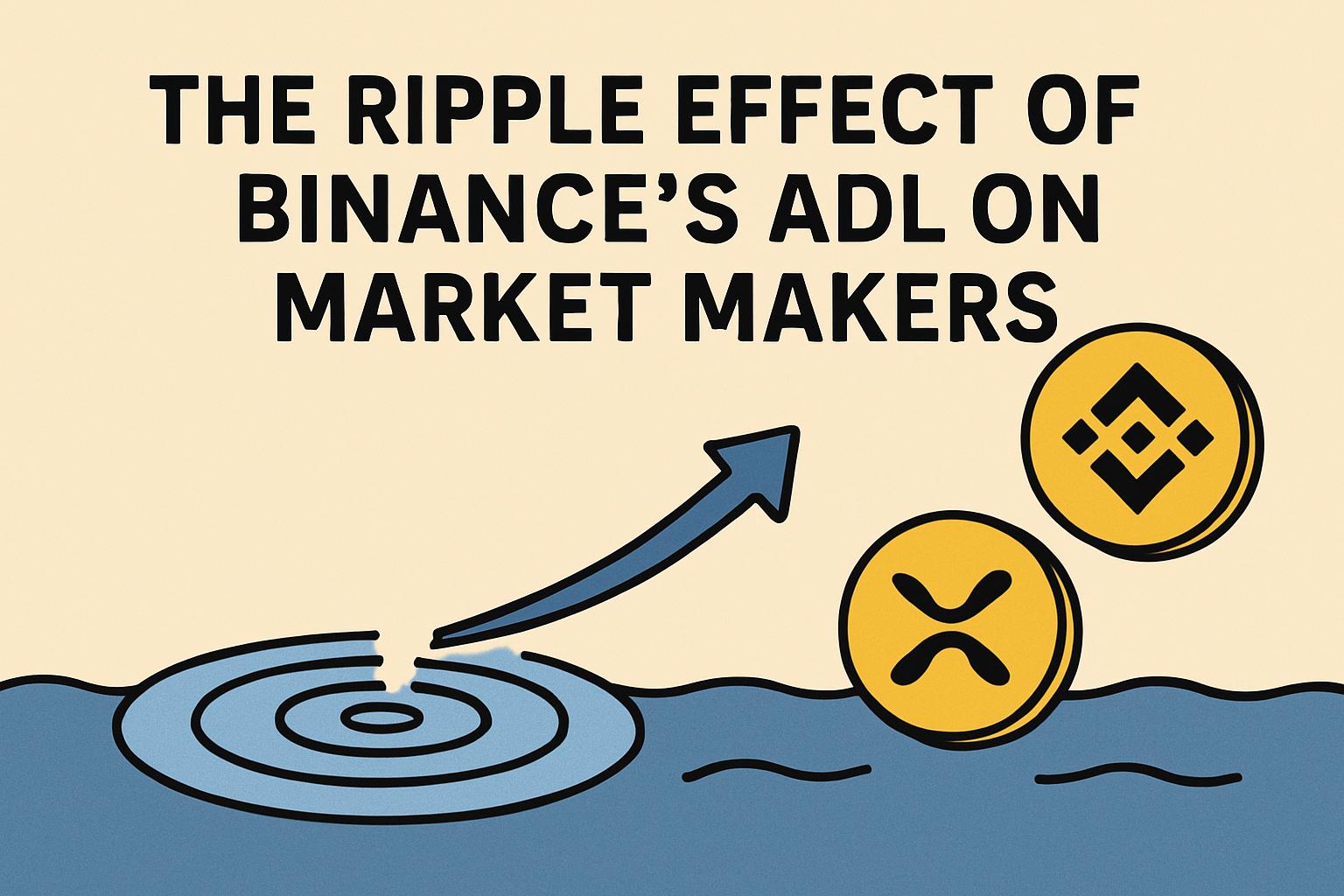The cryptocurrency world has been shaken by a recent series of events triggered by Binance’s automatic deleveraging (ADL) mechanism. This has set off a chain reaction that has left major market makers, including Wintermute, grappling with significant financial losses and a crisis of confidence among investors. As the crypto analyst @BasedMoneyLich points out, the gravity of this situation may have been underestimated by many, potentially ushering in what might be dubbed a ‘liquidity winter.’
The Controversy of Binance’s ADL and the Impact on Wintermute
Wintermute, a prominent market maker, has reported substantial losses due to Binance’s aggressive ADL mechanism. This procedure led to their positions being forcibly liquidated at unfavorable prices, casting doubt on whether Binance will compensate the affected parties. This isn’t an isolated issue for Wintermute but an indication that the entire market liquidity supply chain is experiencing stress.
Why Are Market Makers Vulnerable to ADL?
The crux of the issue lies in the strategies employed by market makers, who often hedge their positions by holding long spot positions while shorting perpetual contracts. This approach allows them to mitigate market direction risks and consistently earn through arbitrage and liquidity provision. However, Binance’s sudden large-scale forced liquidation operations during market volatility leave market makers unable to hedge effectively, thereby incurring significant losses.
An Unsettling Decision: Sell Off or Hold Out?
Facing unexpected losses, market makers are left with a dilemma: sell off assets immediately, effectively withdrawing liquidity from the market, or hold their positions in hope of a price recovery. Either option thins out the order books and deepens the market’s liquidity crisis.
Uncertain Losses, Looming Liquidity Risks
Though the exact financial losses of Wintermute and others remain unclear, their impact is unmistakably profound. As a key partner of Binance, Wintermute’s predicament poses legal and commercial challenges for the exchange. Any compensation from Binance would require meticulous verification of responsibility and valuation of the losses, a potentially lengthy process.
Confidence Crisis and the Vulnerability of Altcoins
Already dealing with a liquidity crunch, the market crisis has hit altcoins particularly hard, more so than mainstream cryptocurrencies like Bitcoin. Binance’s missteps have seriously undermined its reputation, eroding users’ trust regardless of whether these incidents stem from errors or systemic failures.
Wider Market Repercussions: Shattered Wealth and Investor Exit
The crisis isn’t confined to institutional players; retail investors have also suffered substantial liquidations, effectively leaving them financially back at square one. With buying interest dwindling and crypto investments contractingly, the ‘wealth effect’ in the market is disappearing, as starkly illustrated by @BasedMoneyLich’s remark that crypto natives have been reduced to Haitian-level poverty.
This crisis is more severe than it appears. Once trust in liquidity providers wavers, order depth diminishes, and price volatility escalates. This could lead to a long-term confidence crisis. In the current unstable global political and economic climate, the crypto market might struggle to regain its former glory.

![[News] Bitcoin at a Turning Point? 10x Research Signals a Bullish Macro Shift Ahead](https://cryptoexplores.com/wp-content/uploads/2025/06/new20250616.jpg)
![[News] Binance Lists $HOME, the Gas-Free, Bridge-Free All-in-One DeFi App](https://cryptoexplores.com/wp-content/uploads/2025/06/news20250617.jpg)